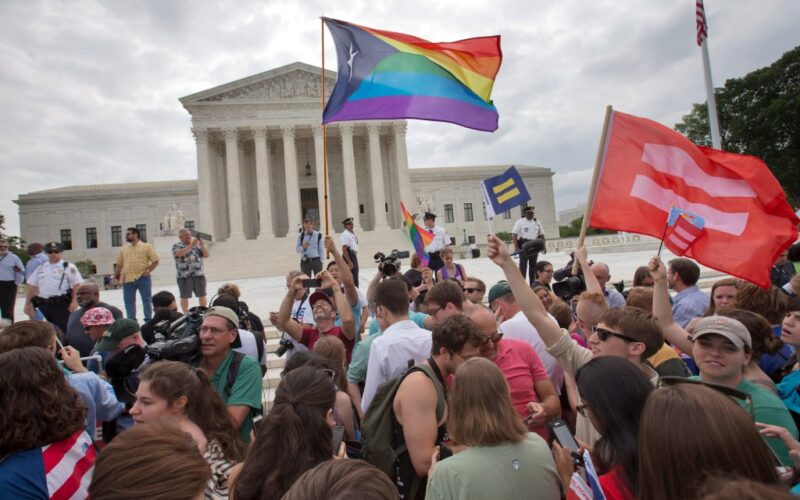When my husband Rob and I adopted our son, Cooper, we were prepared for the lack of sleep, late night feedings and all the other changes that come with the arrival of a new child. Like many other first-time parents, we were ready to navigate through that challenging season of life, especially with the support of a committed partner.
What I wasn’t ready for was being denied listed as parents on our own child’s birth certificate. But that was precisely the situation a decade ago, before the landmark Obergefell vs. Hodges decision from the U.S. Supreme Court that expanded marriage equality nationwide.
In 2011, after 28 years together as a couple, Rob and I got married in New York, months after the state formally recognized marriage equality. It was important to us that the state acknowledged our marriage with that piece of paper on a marriage certificate. But when we adopted our son Cooper in 2013, his home state of Ohio had a law on the books barring same sex marriages, and that carried huge implications for another important piece of paper: the birth certificate.
Because of Ohio’s ban on marriages, we were told that only one of us could be named as Cooper’s parent. As a couple who made a lifelong commitment to raise our child together, it was heartbreaking and cruel for us, but even worse for our infant son.
That is when I went from a check writing activist to a real activist.
We became one of the more than 20 plaintiffs who joined the Obergefell case, named after Jim Obergfell, who was also challenging Ohio’s ban on same sex marriage and their refusal to list his late husband’s name on his death certificate.
After a long and winding journey through the courts, we emerged victorious 10 years ago today, June 26, 2015. The Supreme Court justices required all states to both license same-sex marriages and recognize same-sex marriages performed elsewhere. The decision replaced the patchwork system of state bans on same-sex marriage with a uniform standard.
The joy we experienced that day was far-reaching. It meant that Cooper wouldn’t grow up in a world where one of his dads wasn’t recognized as such under the law. It provided stability and the knowledge that during emergencies, medical decisions or any other unforeseen circumstance, Cooper had two equal parents. Not one listed as an “other.”
Because of Obergefell, our marriage is recognized in all 50 states. In the ensuing decade, more than a million LGBTQ couples have become parents, doing their best to raise happy and healthy children in stable and safe homes. It was about more than just a wedding license. It was about day care, schools, hospitals and taxes. It was about Cooper knowing that his family is equal under the law.
As joyous a day as we felt a decade ago, even then, we knew battle might have been won but the war is still ongoing. Earlier this month, the Southern Baptists Christians (SBC), the largest Protestant denomination in the United States, voted to overturn same-sex marriage at their annual conference. In their eyes, the political sands were shifting in their direction, especially after the Supreme Court overturned Roe v. Wade three years ago.
Such a move would be catastrophic, not just in the message it would send and the potential of returning same-sex couples to their status as second class. But also to all kids like Cooper, who have been raised with two equal parents under the law.
In the ensuing decade, the debate on marriage has shifted from a highly divisive political hot button to broadly accepted. In June 2023, support for marriage reached an all-time high of 73%, including from a majority of Republicans. Even President Trump has stated his support for Obergfell.
In 2022, we traveled to Washington for the signing of the Respect for Marriage Act, which further codifies marriage equality under federal law. The bill passed with sweeping bipartisan support. We brought Cooper with us. It was a full circle moment.
As it was a decade ago, the fight for equality remains worth fighting. Let’s not take our country backward. Every child deserves to grow up in a home where love is protected. Every parent deserves to be recognized as a full parent.
Vitale, a Brooklynite, along with his husband, Rob Talmas, was a plaintiff in the landmark Supreme Court case Obergefell vs. Hodges which legalized same-sex marriage nationwide in 2015.








